I never saw a sight so strange as softly spoken Bill
Fix his bayonet, grit his teeth, go charging up the hill
Machine gun nests are hateful things, spitting swarms of metal grit
Metal grit that pierces skin, taking out those who're hit
They took out a poor young boy near softly spoken Bill
Who one moment was laughing gay, the next, machine gun kill
I never saw a sight so strange
As softly spoken Bill
Fix his bayonet, grit his teeth
Go charging up the hill
So off charged Bill, his eyes ablaze, caring not for spitting nests
Caring even less for the CO's cry of "Who’s that foolish pest?"
Bill ducked the stinging torrent, Bill swerved the bursts of fire
Bill leapt across the barricade after slicing through their wire
"Follow that man!" cried the CO, "Back him to the hilt!"
Thinking the whole of the law shall be 'Do what thou shall wilt'.
I never saw a sight so strange
As softly spoken Bill
Fix his bayonet, grit his teeth
Go charging up the hill
We ran in haste across the mud, we ran up that thar hill
But what we saw stopped us dead and made our blood run chill
For Bill had found the enemy waving hastily-made white flags
So he'd scalped them with his bayonet and put their hair in bags
"Stop that man!" cried out the CO, his lip curling with disdain
So Bill was softly sent back home and never seen again
Oh, I never saw a sight so strange
As softly spoken Bill
Fix his bayonet, grit his teeth
Go charging up the hill
Fix his bayonet, grit his teeth, go charging up the hill
Machine gun nests are hateful things, spitting swarms of metal grit
Metal grit that pierces skin, taking out those who're hit
They took out a poor young boy near softly spoken Bill
Who one moment was laughing gay, the next, machine gun kill
I never saw a sight so strange
As softly spoken Bill
Fix his bayonet, grit his teeth
Go charging up the hill
So off charged Bill, his eyes ablaze, caring not for spitting nests
Caring even less for the CO's cry of "Who’s that foolish pest?"
Bill ducked the stinging torrent, Bill swerved the bursts of fire
Bill leapt across the barricade after slicing through their wire
"Follow that man!" cried the CO, "Back him to the hilt!"
Thinking the whole of the law shall be 'Do what thou shall wilt'.
I never saw a sight so strange
As softly spoken Bill
Fix his bayonet, grit his teeth
Go charging up the hill
We ran in haste across the mud, we ran up that thar hill
But what we saw stopped us dead and made our blood run chill
For Bill had found the enemy waving hastily-made white flags
So he'd scalped them with his bayonet and put their hair in bags
"Stop that man!" cried out the CO, his lip curling with disdain
So Bill was softly sent back home and never seen again
Oh, I never saw a sight so strange
As softly spoken Bill
Fix his bayonet, grit his teeth
Go charging up the hill
Contributed by Dq82 - 2018/12/5 - 15:50
×
![]()
Note for non-Italian users: Sorry, though the interface of this website is translated into English, most commentaries and biographies are in Italian and/or in other languages like French, German, Spanish, Russian etc.

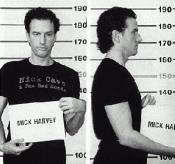
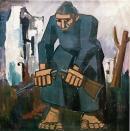
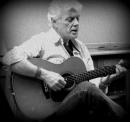
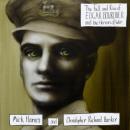
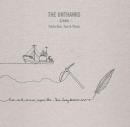
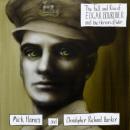
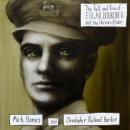
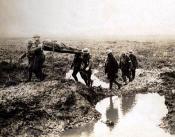
The Fall and Rise of Edgar Bourchier And the Horrors of War
La premessa è sufficiente a sgomberare il campo da ogni dubbio circa la levatura artistica di un musicista che, nonostante le notevoli prove d’autore fornite anche con la sua carriera solistica, è riuscito a rimanere, suo malgrado, sempre un po’ fuori dal circuito mainstream, in un’aura di marginalità nobile e per certi versi salvifica, che gli ha consentito di fare scelte creative talvolta ardite. Ne è la riprova questo suo ultimo, temerario lavoro, scritto a quattro mani con lo scrittore Christopher Richard Barker, per il quale ha musicato e interpretato le testimonianze immaginarie di un personaggio romanzato, il poeta di trincea Edgar Bourchier, che racconta in un variegato registro narrativo le efferatezze e le brutalità sul campo di battaglia della Prima Guerra Mondiale.
The Fall and Rise of Edgar Bourchier And the Horrors of War esce in occasione del centenario dell’Armistizio, e contiene in sé uno storytelling dall’approccio onnicomprensivo, che raccoglie frammenti multiformi di memorie immaginate, in cui entrano in gioco la paura, la giovinezza, la rabbia, la nostalgia, il senso d’inutilità. Dal punto di vista compositivo, è interessante constatare l’ambiziosa carrellata dei generi attraversati: dal folk tradizionale, che richiama un tempo perduto evocando strumenti antichi come le fisarmoniche, oltre all’inevitabile corredo di piani e chitarre acustiche (Pounding for Peace, The Poetic Clown), al post punk in pieno stile Birthday Party (Poor Por Surgeon Tim, The Expressionist #2, Corpse 564), sino alla dark wave vera e propria, con i sussurri di I Am The Messenger o The Lost Bastard Son of War, il cui riff pare emulare dichiaratamente She’s Lost Control dei Joy Division. Interessante anche l’esperimento di The Expressionist #1, dove una marcia militare e i cori che la scandiscono, sembrano voler diventare un ritmo punk.
In questo riuscito progetto atemporale, in cui sia la storia narrata che gli stili musicali richiamano il passato con un chiaro e costante riferimento al presente e una sapiente lettura contemporanea, troviamo il condensato di quello che dovrebbe essere un disco autoriale: una buona storia e un credibile incedere narrativo. Il messaggio è chiaro in tutto il suo ineluttabile pathos, eppure l’atmosfera in cui quel messaggio aleggia non appare mai enfatica e greve. Rischiava di essere un lavoro pretenzioso, è riuscito a non esserlo.
sentireascoltare.com